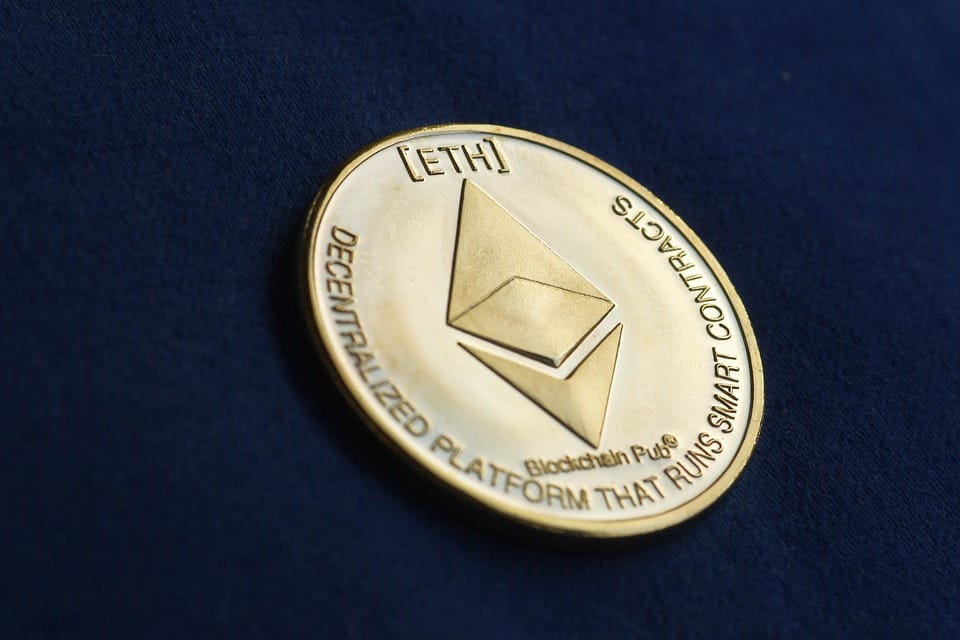Beyond Bitcoin: Why Ethereum is the Future of Cryptocurrency
The world of cryptocurrency has been dominated by Bitcoin for years, but a new player has emerged to challenge its reign. Ethereum, the second-largest cryptocurrency by market capitalization, has been gaining traction and attention from investors, developers, and users alike. While Bitcoin is often seen as a store of value, Ethereum is a platform that enables the creation of decentralized applications (dApps) and smart contracts, making it a game-changer in the world of cryptocurrency.
What is Ethereum?
Ethereum is an open-source, decentralized blockchain platform that was created in 2015 by Vitalik Buterin, a Russian-Canadian programmer. It was designed to be a more versatile and flexible alternative to Bitcoin, with a focus on enabling the creation of decentralized applications and smart contracts. Ethereum’s native cryptocurrency is Ether (ETH), which is used to pay for transactions and computational services on the network.
Why is Ethereum the Future of Cryptocurrency?
So, why is Ethereum considered the future of cryptocurrency? Here are some reasons:
- Smart Contracts: Ethereum’s smart contract platform allows developers to create self-executing contracts with specific rules and regulations. This enables the creation of decentralized applications (dApps) that can automate complex processes, such as supply chain management, voting systems, and more.
- Decentralized Applications (dApps): Ethereum’s platform enables the creation of dApps, which are decentralized applications that run on the blockchain. dApps are more secure, transparent, and resistant to censorship than traditional applications.
- Scalability: Ethereum’s scalability is a major advantage over Bitcoin. While Bitcoin’s blockchain is limited to a maximum of 7 transactions per second, Ethereum’s blockchain can process up to 15 transactions per second, making it more suitable for real-world applications.
- Interoperability: Ethereum’s platform is designed to be interoperable with other blockchain platforms, making it possible to integrate different blockchains and create a more decentralized and connected ecosystem.
- Community: Ethereum has a large and active community of developers, users, and investors, which is essential for the growth and development of the platform.
- Innovation: Ethereum’s platform is constantly evolving, with new features and updates being added regularly. This innovation is driving the development of new use cases and applications, such as decentralized finance (DeFi) and non-fungible tokens (NFTs).
Use Cases for Ethereum
Ethereum’s platform has a wide range of use cases, including:
- Decentralized Finance (DeFi): Ethereum’s platform is being used to create decentralized lending platforms, decentralized exchanges, and other financial applications.
- Non-Fungible Tokens (NFTs): Ethereum’s platform is being used to create unique digital assets, such as art, collectibles, and gaming items.
- Supply Chain Management: Ethereum’s platform is being used to create decentralized supply chain management systems, which can track goods and products from production to delivery.
- Voting Systems: Ethereum’s platform is being used to create decentralized voting systems, which can ensure the integrity and transparency of elections.
- Healthcare: Ethereum’s platform is being used to create decentralized healthcare applications, such as electronic health records and medical research platforms.
Conclusion
In conclusion, Ethereum is the future of cryptocurrency due to its smart contract platform, scalability, interoperability, community, and innovation. While Bitcoin is often seen as a store of value, Ethereum is a platform that enables the creation of decentralized applications and smart contracts, making it a game-changer in the world of cryptocurrency. As the world becomes increasingly decentralized, Ethereum’s platform is poised to play a major role in shaping the future of finance, technology, and society.
FAQs
Q: What is the difference between Ethereum and Bitcoin?
A: Ethereum is a decentralized platform that enables the creation of decentralized applications and smart contracts, while Bitcoin is a digital currency that is primarily used as a store of value.
Q: What is the purpose of Ether (ETH)?
A: Ether (ETH) is the native cryptocurrency of the Ethereum platform and is used to pay for transactions and computational services on the network.
Q: What are smart contracts?
A: Smart contracts are self-executing contracts with specific rules and regulations that are stored and replicated on the blockchain.
Q: What are decentralized applications (dApps)?
A: dApps are decentralized applications that run on the blockchain and are more secure, transparent, and resistant to censorship than traditional applications.
Q: Is Ethereum a security?
A: Ethereum is not a security, but rather a decentralized platform that enables the creation of decentralized applications and smart contracts.
Q: Can I use Ethereum for everyday transactions?
A: While Ethereum is not designed for everyday transactions, it is possible to use it for small transactions, such as buying digital goods or services.
Q: Is Ethereum regulated?
A: Ethereum is not regulated in the same way as traditional financial institutions, but it is subject to laws and regulations related to cryptocurrency and blockchain technology.
Q: Can I mine Ethereum?
A: Yes, it is possible to mine Ethereum, but it requires significant computational power and energy consumption.
Q: Is Ethereum secure?
A: Ethereum’s platform is designed to be secure, with built-in features such as cryptography and consensus mechanisms to ensure the integrity and transparency of the network.
Q: Can I use Ethereum for international transactions?
A: Yes, Ethereum’s platform is designed to enable international transactions, making it possible to send and receive Ether (ETH) across borders.
Q: Is Ethereum compatible with other blockchain platforms?
A: Yes, Ethereum’s platform is designed to be interoperable with other blockchain platforms, making it possible to integrate different blockchains and create a more decentralized and connected ecosystem.

Leave a Reply